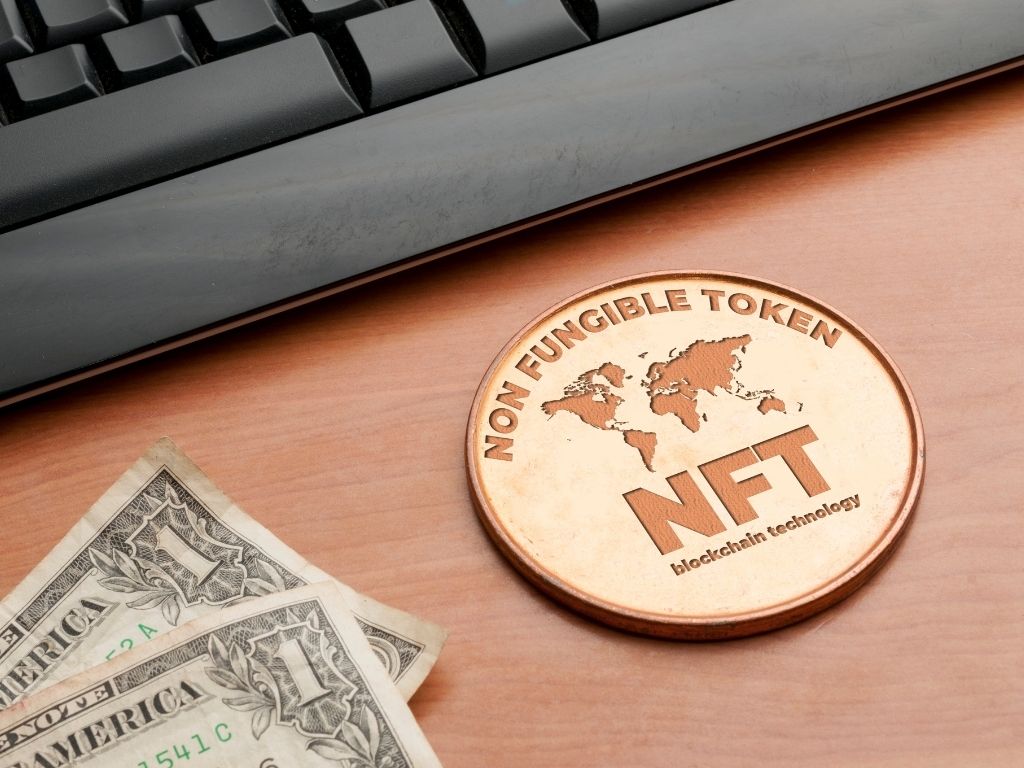What Are The Legal Risks And Issues With NFT Investment
The increasing interest in non-fungible tokens (NFTs) as a new asset class and the potential for NFTs to provide multiple revenue streams are particularly enticing opportunities for content creators and investors. However, these new opportunities promote prudence for businesses to avoid probable regulatory repercussions.
Similarly, everyday digital content creators, sellers, and buyers must be mindful of the inherent risks in creating and transferring digital assets.
The only secure method to trade non-fungible tokens is on reputable marketplaces, thoroughly analyse what you are purchasing, and verify that the related smart contracts accurately reflect the circumstances and rights you seek to buy. non-fungible tokens may not be traded anyplace else.
Even though it is often assumed that trading in NFTs is identical to trading in cryptocurrencies, the sector faces regulatory hurdles since NFTs include several regulations. Participants in NFTs should examine a broad range of legal implications, including NFT privacy issues, security risks, copyright and intellectual property ownership, and anti-money laundering rules (AML).
Issuers of the NFT and service providers are often regulated by the local authorities where the NFT is issued. However, because of the intrinsically global nature of these digital assets, it is sometimes required to evaluate them across many countries.
Concerns about the legality and the risks that NFTs pose
Amir Soleymani, a British art collector, was involved in one of the early legal examples of NFTs. Soleymani filed a complaint in the High Court of the United Kingdom about an auction organized by Beeple dubbed NFT Abundance against a marketplace named Nifty Gateway. Soleymani’s assets were frozen by Nifty Gateway after he was requested to pay for a different version of the artwork he had bid for. Soleymani’s help was blocked by Nifty Gateway because he failed to pay for the painting.
The usage of non-fungible tokens is not explicitly regulated at this time, and the Soleymani case indicates that the market for NFTs is still evolving alongside the legal and regulatory hurdles it faces.
The international organization known as the Financial Action Task Force (FATF), which is responsible for defining the Anti-Money Laundering and Combating the Financing of Terrorism and proliferation (CFT) guidelines, considers NFTs to be “crypto-collectables.” This categorization differentiates non-traditional financial instruments from cryptocurrency and virtual assets.
On the other hand, the FATF proposes considering the properties of the non-fungible token on a case-by-case basis, giving special attention to its nature and practical use. The significant distinction between them is whether or not they are regarded as payments or have an investment purpose.
In this part, we will examine the most frequent pending legal issues that have not yet been adequately established.
How the NFT revolution poses key risks and legal issues – International Investment https://t.co/k9UDacvp7M
— 1EthSwapApe (@1EthSwapApe) March 7, 2022
Other property rights include ownership rights, copyright, and intellectual property.
A purchaser of NFTs must comprehensively understand the rights they are acquiring. The vendor may maintain the copyright for the non-fungible token now available for purchase. A video of great basketball player LeBron James doing a slam dunk illustrates this well.
This video was made available as part of a limited-edition collectors package of NBA highlight films. On the Top Shot NFTs market, NBA fans may buy and exchange league-related memorabilia. The NBA owns the copyright for any item purchased, and duplication of any content is subject to the terms of the NBA’s license agreement.
On the other hand, sellers should be careful not to give away accidental rights and make all terms as straightforward as possible to avoid potential purchasers claiming they were misled about the rights.
The use of smart contracts is among the main components of the NFT agreement. The code included in the NFT, such as the royalties or commission on the future resale of the token, should be accorded the same level of consideration as the fine print in a contract. In other words, we should give it our full attention.
A copyright holder refers to the person or organization that holds the rights to a specific work. Unless they have transferred exclusive rights to another individual or organization, this individual or firm can prohibit any non-exclusive publishing, alteration, distribution, or display of the work.
NFT markets maintain the right to freeze user assets or terminate accounts if the contract conditions are violated. This includes the opportunity to delete any artwork connected to the report.
Statutes safeguarding personal data and privacy
Individuals often have the “right to be forgotten” under data protection regulations, notably under the EU’s General Data Protection Regulation, and the right to amend or delete their data from public and private organizations. This privilege is provided under data protection regulations.
Due to the irreversible nature of blockchain technology, it may be impossible or tough to use this permission. Because of this, non-fungible tokens that hold personal data may violate legislation governing personal data protection.
Money laundering using NFT platforms is gaining growing attention in the context of AML laws. As the value of NFTs continues to rise, so do concerns that dishonest persons may discover a method to circumvent regulations such as AML.
Because cryptocurrencies provide a degree of anonymity acceptable for both buyers and sellers, people with malicious intent are more likely to utilize NFTs to launder money than they are to use regular channels. NFT markets must be cognizant of these risks, offer a prompt reaction to them, and comply with the appropriate regulatory framework.
Security
Because NFTs are a relatively new technology, they do not yet provide a sufficient level of security to protect both users and investors. The security of NFTs is susceptible to hacking and asset theft. Since NFT markets are often centralized and hosted on the servers of third-party websites, security issues should be considered carefully.
Regrettably, impersonator-committed thefts are too common in the bitcoin and digital industries, and it may be impossible to stop them legally. Since the value of NFTs has increased tremendously, the number of bad actors imitating platforms, exchanges, influencers, and wallets to steal user information and access their assets has increased dramatically.
Platform platforms such as Nifty Gateway hold private keys to all assets. As was previously the case with the Open Sea phishing scam, hackers may exploit vulnerabilities, cast doubt on the platform’s security, and steal vast sums of NFT.
Planning for your estate and successors Similarly to cryptocurrency owners, NFT owners must carefully consider estate and asset succession. The only way to guarantee a flawless transfer of ownership is to ensure that future beneficiaries have access to private keys, passcodes, and other pertinent security settings.
The assistance of an outside attorney is an option that must be addressed. On the other hand, blockchains must provide a simple means for successors to access digitally stored assets without relying on intermediary players.
The impact of NFTs on the environment.
The fact that non-fungible tokens (NFTs) can be harmful to the environment and that there are legal steps that can be taken to prevent problems for businesses that are tied to NFTs that are inefficient from an energy standpoint is one of the primary obstacles that investors face when dealing with non-fungible tokens.
Environmental considerations are ascending the enterprises’ priority list, especially in government-backed laws. Consequently, enterprises affiliated with NFT must comply with these criteria by making public disclosures on their websites and in papers preceding agreements.
Recent law suggested by the European Union (EU) would prohibit the use of proof-of-work (PoW) blockchains owing to the environmental problems they produce. Unavoidably, this regulation would have harmed the market for non-fungible tokens. The bitcoin community breathed a sigh of relief when they learned that the European Parliament had rejected the law.
Risk of fraud
Despite the immutability, transparency, and time-stamped ownership characteristics of blockchain technology, the market remains vulnerable to fraud. Because these attributes are only usable when the data has been stored in the blockchain, they are all rendered useless.
In theory, the existing data cannot be faked; nonetheless, any lousy actor can insert false data into the blockchain. As an example, they may reproduce a non-financial transfer that is not theirs without the original author’s consent.
Last year, a phoney Banksy was able to sell NFTs and create one million dollars in ETH, gaining infamy in the process. Before investing a substantial amount of money in an asset, you should always do extensive research about the NFT’s storage and history. This should be accomplished before making any form of severe financial commitment.
Aspects of taxes
Exist NFT-related prospects for profit? The quick answer is that it is possible. Despite this, you must decide whether non-financial transfers (NFTs) are desirable and if they have a future in light of the potential risks and legal and tax implications.
Similar to how the law has been slow to catch up with cryptocurrencies, it has also been slow to catch up with NFTs’ legal problems and taxation. Consequently, it remains unclear where NFTs fit within the context of tax reasons.
How taxes are applied to NFT creators vs. NFT investors
Did you create the NFT, or did you invest in it? NFTs are subject to taxation in every jurisdiction; however, the tariff’s particulars and the amounts owed depend on the kind of firm. Developers and investors in NFTs should familiarise themselves with the laws of the jurisdiction in which they operate since taxes and the regulations governing them differ by nation.
In other words, in the United States, the establishment of an NFT is not considered a taxable event. Attempting to market it as a real business or investment is another ballgame. The settlement amount received by the NFT creator would be subject to income tax if they sold the digital asset for ETH on any of the available exchanges. A capital gains or losses event is triggered if the creator instantly converts the ETH received into any fiat currency.
If, for example, the sale occurs after a year, the taxable value will be different and calculated in line with the tax laws of the local jurisdiction. When an asset is held for a more extended period, it is typically expected that the amount of taxes owing will be less.
The consumer who purchases the NFT using ETH, on the other hand, must accept either capital gains or losses, depending on whether the price of ETH has climbed or fallen since it was initially acquired.
The forecast for the future regulatory environment regarding NFTs
The current legislative structure is not designed to support the fast-changing environment of cryptocurrencies and the rising popularity of non-fungible tokens (NFTs).
As it is anticipated that these digital assets will play an increasingly significant role in day-to-day life, from the virtual existence of the Metaverse to real-world applications such as identification or academic certificates, any future regulation will have a substantial impact on how these assets will be utilized. Regulators will be responsible for addressing the negative consequences of NFT legislation without limiting innovation and uptake.
Stay informed with daily updates from Blockchain Magazine on Google News. Click here to follow us and mark as favorite: [Blockchain Magazine on Google News].
Get Blockchain Insights In Inbox
Stay ahead of the curve with expert analysis and market updates.
latest from tech
Disclaimer: Any post shared by a third-party agency are sponsored and Blockchain Magazine has no views on any such posts. The views and opinions expressed in this post are those of the clients and do not necessarily reflect the official policy or position of Blockchain Magazine. The information provided in this post is for informational purposes only and should not be considered as financial, investment, or professional advice. Blockchain Magazine does not endorse or promote any specific products, services, or companies mentioned in this posts. Readers are encouraged to conduct their own research and consult with a qualified professional before making any financial decisions. The featured image used is just a creative depiction of the title and it does not intend to hurt sentiments of any person or institution. If it hurts anyone sentiments, please do not hesitate to reach out to Blockchain Magazine.

 Bitcoin
Bitcoin  Ethereum
Ethereum  XRP
XRP  Tether
Tether  Solana
Solana  Dogecoin
Dogecoin  USDC
USDC  Cardano
Cardano  Lido Staked Ether
Lido Staked Ether  TRON
TRON  Chainlink
Chainlink  Avalanche
Avalanche  Sui
Sui  Wrapped stETH
Wrapped stETH  Wrapped Bitcoin
Wrapped Bitcoin  Stellar
Stellar  Toncoin
Toncoin  Hedera
Hedera  Shiba Inu
Shiba Inu  WETH
WETH  Polkadot
Polkadot  Parkcoin
Parkcoin  Litecoin
Litecoin  LEO Token
LEO Token  Bitcoin Cash
Bitcoin Cash  Bitget Token
Bitget Token  Official Trump
Official Trump  Uniswap
Uniswap  Hyperliquid
Hyperliquid  Pepe
Pepe  Wrapped eETH
Wrapped eETH  USDS
USDS  NEAR Protocol
NEAR Protocol  Ethena USDe
Ethena USDe  Aave
Aave  Aptos
Aptos  Internet Computer
Internet Computer  Ondo
Ondo  WhiteBIT Coin
WhiteBIT Coin  Ethereum Classic
Ethereum Classic  Monero
Monero  POL (ex-MATIC)
POL (ex-MATIC)  Cronos
Cronos  Render
Render  Mantle
Mantle  Algorand
Algorand  Dai
Dai  OKB
OKB 




